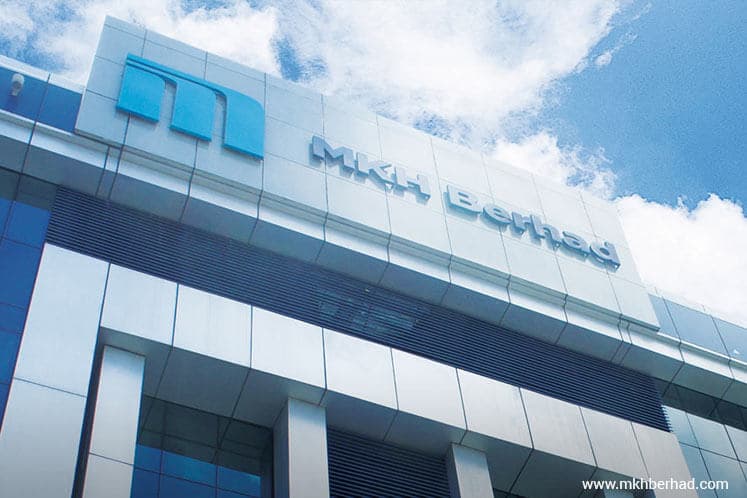
This article first appeared in The Edge Financial Daily on October 1, 2018
KUALA LUMPUR: Kajang-based MKH Bhd is likely to post its lowest annual net profit in five years in the financial year just ended, but a rebound is expected in the new financial year ending Sept 30, 2019 (FY19) as the property developer focuses on affordable high-rise housing developments.
For the cumulative nine months ended June 30, 2018, net profit has fallen by 48.6% year-on-year (y-o-y) to RM63.86 million. This is on the back of a 7.4% y-o-y decline in revenue to RM748.21 million.
“[FY18] will be our worst [in five years], but I don’t see a repeat of last year’s performance in FY19,” MKH group managing director Tan Sri Datuk Eddy Chen Lok Lai told The Edge Financial Daily on the sidelines of Rehda Institute CEO Series 2018 (Annual Property Developers Conference) last week. Chen is now Perbadanan PR1MA Malaysia chairman with effect from today.
“I expect a big upside [in the property sector] in 2019 and 2020, which will help us achieve a better year. We have a wide range of products to ensure that we don’t miss out on any opportunities when a rebound comes,” he said.
Chen is also hoping that the government will come up with incentives to spur the property sector in the upcoming Budget 2019.
“I hope that the government will provide some form of incentives like easing lending rules, that will help to boost the local housing market,” he added.
On its part, MKH has built “a more resilient margin” through cost-cutting, as well as value engineering, said Chen.
He said demand remains strong in the property sector, but margins remain under pressure. He blamed this on the group lowering its selling prices and offering discounts to lure homebuyers. A high number of unsold stocks has also contributed to the squeezed margins.
He also pointed out that projects that are coming to a tail-end suffers an average of 4% margin compression.
On MKH’s part, its unsold inventory stands at no more than RM100 million.
For FY18, the group expects to achieve about RM800 million to RM900 million worth of sales. As of June 30, the group’s unbilled sales stood at a record high of RM998.6 million from ongoing projects namely Hill Park Shah Alam (RM250.6 million), Saville@Cheras (RM23.8 million), Saville@D’Lake Puchong (RM34.4 million), Hillpark Residence (RM99.3 million), TR Residence (RM281.8 million), Kajang 2 Precinct 2 (RM76.6 million) and Inspirasi Mont’ Kiara (RM232.1 million).
With a land bank of 600 acres (242.81ha) and a potential gross development value of RM9 billion, Chen said it could sustain the group for eight years.
“Our target is to launch at least RM900 million worth of properties in FY19, mainly on affordable high-rise housing developments,” he added.
On its plantation business, Chen said MKH enjoys a “pretty stable” fresh fruit bunch (FFB) yield of close to 30 tonnes per hectare to-date. Based on its Annual Report 2017, the group’s FFB yield per hectare for FY17, FY16 and FY15 were 26 tonnes, 25 tonnes and 25 tonnes respectively.
Looking ahead, Chen said he sees the FFB yield to be sustainable, barring any unforeseen weather condition.
“Indonesia, now, has imposed a moratorium for the next three years for any new planting in oil palm, which will be good for us, because we are almost fully planted. Hence, we won’t be affected by this. In fact, this moratorium will be good for existing plantation like ours,” said Chen.
He explained that this will stabilise the crude palm oil (CPO) supply, which in return will stabilise the CPO prices.
On his forecast for CPO prices, Chen is of the view that it should improve. The benchmark palm oil contract for December delivery on the Bursa Malaysia Derivatives Exchange was up 4% at RM2,170 a tonne at the close of trade last Friday.
“All of our trees have almost reach the matured level,” said Chen, adding that the group may not be seeing any replanting activities in another 10 years at the minimum.
As at June 30, 2018, its mature areas stood at 15,623ha out of the total oil palm planted area of 18,388ha. MKH’s plantations are located in East Kalimantan, Indonesia via its subsidiaries, namely PT Maju Kalimantan Hadapan and PT Sawit Prima Sakti.
In a note to clients on Aug 30, AllianceDBS Research analyst Quah He Wei said he continues to like MKH for its strong earnings visibility given its high unbilled sales, as well as strong recurring income which contributes about 30% of its full-year earnings.
“We are expecting a relatively low FY18 [property] sales of RM630 million compared with its achieved FY17 sales of RM808 million in view of the intensifying competition in the local property market,” he said, maintaining a “buy” call on the stock with a target price of RM1.70.
Quah is forecasting MKH’s net profit for FY18 and FY19 to come in at RM120 million and RM107 million respectively. Estimates for revenue stood at RM1.013 billion for FY18 and RM1 billion for FY19.
The stock has been on a downward trend since Feb 6 last year at RM3, falling 40.8% over the past year to close at RM1.26 last Friday with a market capitalisation to RM732.1 million.